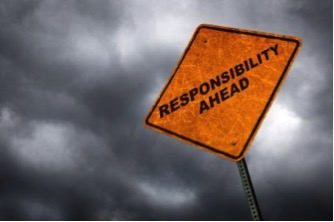One of the biggest misconceptions around charter schools is that they lack accountability. While I am a strong supporter of public schools and take pride in serving on the school board for my local school district, I frequently find myself having to defend high performing charters and their mere existence to naysayers who lack awareness of the procedures in place to review and revoke charter petitions. Like everything, charter schools are not all created equal. While some charters have been able to “show that significantly disadvantaged groups of students are doing substantially better in both reading and math,” other charters have not been able to meet the minimum guidelines, which has created a wave of concerns and distrust against the validity and need for charters in our communities.
Unfortunately, the lack of awareness around charter renewals and the accountability systems in place, has allowed for many to question how far charters can go and whether we can truly trust them. To help dismantle the negative criticism against charters, the California Charter Schools Association (CCSA), a membership and advocacy group that supports nearly 1,300 charter schools in California, has taken a lead role in advocating for high-performing charters while also holding low-performing schools accountable. Since 2011, CCSA has publicly called for the non renewal of charter schools that do not meet their minimum criteria framework for renewal. “This framework assesses a multi-year view of a school’s performance using multiple student outcome measures.” CCSA uses publicly available data, students’ demographics and works individually with charters below the minimum criteria to give them an opportunity to provide additional compelling evidence of growth in student achievement.
In the spirit of continuing their advocacy and implementing the accountability systems framework, last week CCSA released a statement calling for the non renewal of six chronically underperforming charter Schools. CCSA remains the strongest advocate for charters in California but continues to stand on the platform that when charter schools do not provide a high-quality education to their students, they should close. As shared in its press release, to advocate and highlight the impact and success of transformational charters, it is critical to also emphasize accountability.
Even though closing a school is still viewed as the last resort, by utilizing results and the minimum criteria framework, CCSA wants to create transparency for students and parents to know where their school stands to truly have a choice.
CCSA has found that the following schools fall below the minimum renewal criteria and perform far below average on several other academic performance measures.
| 2016-17 Charter Public Schools Below CCSA’s Minimum Criteria for Renewal
Charter Schools Renewing in 2016-17 |
||
| School Name | Authorizer | County |
| Academy of Science & Engineering | Los Angeles Unified School District | Los Angeles |
| Butterfield Charter High School | Porterville Unified School District | Tulare |
| Green Valley Charter School | Los Banos Unified School District | Merced |
| North County Trade Tech High School | Vista Unified School District | San Diego |
| Schaefer Charter School | Piner-Olivet Union Elementary School District | Sonoma |
| West Sacramento Early College Prep Charter School | Washington Unified School District | Yolo |
While CCSA offers renewal support to schools who meet one of the criteria under the established minimum framework (four areas listed below), the schools included in the above table did not meet any of the initial criteria and did not yield enough evidence of student outcome success.
CCSA’s Minimum Academic Criteria for Renewing and Replicating Schools, 2016-17
1) Status measure: Above 40th percentile on SBAC
2) Growth/ Postsecondary readiness
3) Similar Students: measures how schools are performing with similar students across the state)
4) Schools below ALL the initial filters or in the bottom 5% statewide on SBAC can share outcomes aligned to California’s 8 state priorities as described in the school’s Local Control Accountability Plan (LCAP).
The CCSA has already committed to working with closing schools to find new options that will better meet the individual needs of students and families. It will be our responsibility as citizens to provide students and families of these schools options to schools that will best serve them.
As we move forward, it will be important to create awareness around the existing academic accountability framework to ensure people know charters are not only celebrated for their success but also held responsible for their failures. Transparency around charter performance must continue to be emphasized to help dismantle the many misconceptions around the review process. The reality is greater flexibility should only equate to greater accountability, and in order to provide parents and families the best options for school choice, we must support CCSA’s stand to push for chronically underperforming schools to close.
Alma Renteria
Latest posts by Alma Renteria (see all)
- Rincón Universitario: Cómo Escribir una Narrativa Auténtica para Solicitudes de Universidades, Parte 3 - October 17, 2019
- College Corner: How To Write An Authentic Narrative for College Applications, Part 3 - October 15, 2019
- Rincón Universitario: Cómo Escribir Una Narrativa Auténtica para Solicitudes Universitarias, Parte 2 - October 1, 2019
- College Corner: How To Write An Authentic Narrative for College Applications, Part 2 - September 26, 2019
- College Corner: Cómo Escribir un Relato Auténtico de Solicitudes para la Universidad, Parte 1 - September 4, 2019

